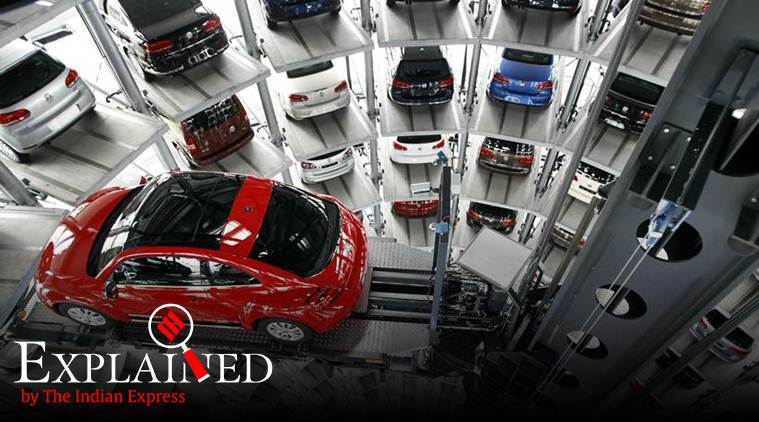The month of July was brutal for the auto sector and August shows no sign of being any better either. For the month of July, sales of India’s top five auto companies, which account for 85% of industry sales, reported a 31% decline in sales compared to last year.
Sales of Maruti and Honda declined the sharpest at 36.71% and 48.67%, respectively. The Nifty Auto Index declined to the lowest level in five years.
The more worrying part is that the slowdown isn’t likely to be over soon. Pawan Goenka, managing director and CEO of Mahindra & Mahindra, had told FE last month that the worst is still to come. Chirag Shah and Jay Mehta of Edelweiss Securities seem to echo the same. The two analysts have closely studied the slowdown in auto sales over 20 years, and drawing parallels from the past, they believe that the industry is mid-way in the slowdown for two-wheelers and passenger vehicles, with the first quarter of FY20 being the first quarter of sharp sales dip.
Unlike in the past, the current slowdown is due to an economic downturn rather than over-capacity in the industry. It is for this reason that Edelweiss believes that volume recovery is unlikely to be as sharp as in the past, unless there is strong stimulus support.
In an interview with FE, Pawan Goenka, MD & CEO of Mahindra and Mahindra, had said, “I am hoping the government will do something about this. If that happens, the auto sector can come out of the slowdown.”
Chris Wood, the celebrated strategist at Jefferies, has said in his August 1 note, “This week has seen another own goal, in GREED & fear’s view, in the form of measures proposed by the road transport and highways ministry to encourage the scrapping of vehicles. The motive here again seems to be ‘green’ driven in the sense of the desire to improve air quality and the promotion of electric vehicles. But the details are negative from a growth standpoint as is evident from the reaction of auto-related stocks to the announcement last Friday.”
India’s auto industry accounts for nearly half of India’s manufacturing output and employs over 50 lakh people. Following the sharp slowdown in sales since April, the industry is staring at job losses as production cuts continue to accelerate. India’s largest automaker Maruti Suzuki has already let go of 1,181 temporary workers at its factories.
Given that economic growth is sluggish and if the liquidity crunch persists, consumer sentiment will weaken further once prices increase from October 2019, spelling further bad news for the auto sector.

